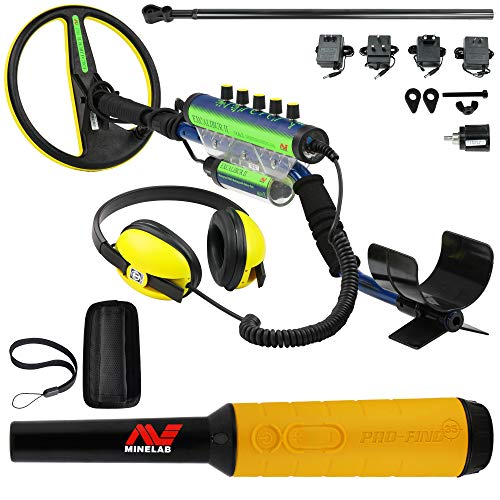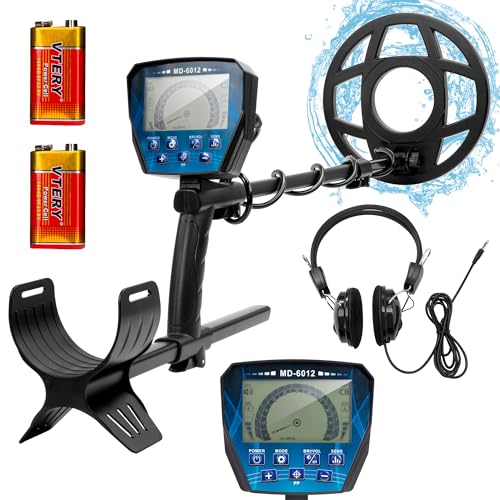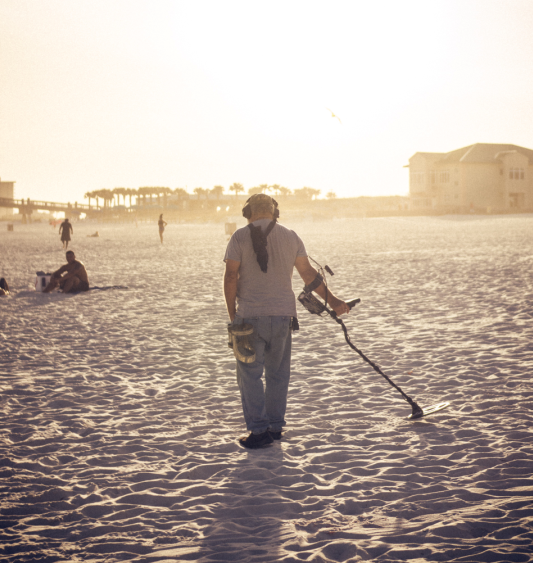
The Best Beach Metal Detecting Tips
In this article we will explore some of the best beach metal detecting tips and why this activity can become very profitable. Long before tourists spent lazy days on the beach, swimming in the ocean and generally having a relaxing time, the coastline was used for a much different reason. Pirates used the coast and the beaches, especially those little coves hidden away, to bring their loot ashore. This was only one of the activities from the past, that make beach metal detecting a great place to find long forgotten treasure.
Add to that the modern obsession with tourists flocking to the beach, where especially after a swim, items of value are frequently lost in the sand and you can see that a day at the beach with your detector can be a very profitable endeavor.
Don’t forget to get that all-important permission
You will quite often require permission to detect on a public beach. You may also need some kind of permit and need to follow certain rules and guidelines. Here once again Google is your friend. A quick search will give you any information you may need.
And it also goes without saying that private beaches will require permission from the property owners. This really needs to be sorted out before you even step onto the sand and if possible the permission should be in writing, along with the rules of the hours you can detect and who has ownership of any finds you may uncover.
Beach metal detecting is in many cases like metal detecting on land, in that you still need to get the permission of the landowner and follow any rules that apply to that area.
Our No 1 beach metal detecting tip!!!
Our No 1 tip to be successful at beach metal detecting is to do your due diligence. You need to be observing the people at the beach, their patterns of movement, and where they spend most of their time. These will obviously be the area you will want to search once they have gone home.

Another good tip is to do your research on the internet too. Find out a little history of the place and any significant events that may have happened in the distant past. These things will help you have a better idea of not only where to search but also what you should be looking for.
Beach metal detecting tips and techniques
You should by now be aware that the ‘towel line’ is a great place to start. People tend to be creatures of habit and follow each other’s leads. So they tend to set their towels down around the same places time and time again.
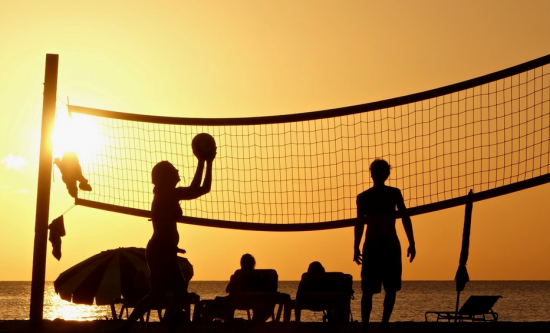
Another great place to search is an area where people tend to gather, such as refreshment stands or picnic areas. And if you see a beach volleyball set up, it may be worth your while scanning that area too.
Areas that many beach detectorists fail to check are the rinse-off areas and entry and exit points of the beach. These can be good places to check as people tend to drop their belongings when leaning down to rinse off or to change their footwear.
Also, it is worth detecting some of the shaded areas around the beach. People tend to spend time there on those particularly warm days. Any of these areas can be very profitable places to detect, but you need to also understand that you will find much more trash than treasure.
Don’t forget to remove this trash as you go and dispose of it in a suitable place later. This not only makes the beach a nicer place but also cuts down on any false signals for other detectorists in the future.
What’s Gridding?
This is a great strategy for areas such as beaches, as one area of sand looks very similar to another. Using this procedure in your beach detecting, you will always turn up items. Gridding helps you be more methodical in your search while making the process simple and straightforward.
- Choose an area of hard-packed sand parallel to the ocean. You can mark out your grid in the sand.
- Then you need to complete a swing of your detector for every step you take along the grid.
- On reaching the end of your marked-out grid, take a step to the side you haven’t searched yet.
- Repeat the process, ensuring that you’re swing is wide enough to overlap the area you have just searched.
- Repeat this process until you have completely searched the grid.
Is it best to search wet or dry sand?
Here’s where beach detecting can vary depending on which type of sand you are searching. Dry sand is very similar in many ways to sandy soil, but with a lot more trash buried beneath its surface. So it’s just one of those unfortunate facts that you will have to get through the trash before you hit that treasure.
Hunting in the wet sand is carried out when the tide recedes. In fact, detecting at low tide can be very rewarding indeed, especially after a storm has passed. You should look for signs such as dips in the wet sand or where there are pockets of shells. These are often good places to search.
It also goes without saying that if you are going to carry out any beach detecting, make sure that you have a waterproof coil as a minimum. Choosing a waterproof detector or even a submersible can give you peace of mind and also open up many more possibilities in your beach detecting journey.
VLF vs. PI Metal Detectors – What’s the difference?
VLF or Very Low-Frequency detectors such as the Garrett AT Max are not only great for novices but also for seasoned detectorists too. They are great not only for detecting on dry sand but also freshwater too. The only downside to VLF detectors is that you can often get false signals from wet salty sand. So if you decide to go for one of these, you should make sure it has an adjustable ground balance that takes salt into account.
Whereas PI or Pulse Induction detectors such as the excellent Garrett ATX Pro are designed to ignore salt and their detection depth is much greater. But the one downside with these is that they cannot differentiate between trash and iron when searching for gold and they also tend to be a lot more expensive than their VLF counterparts.
Here are our Top Metal Detectors for the Beach
As we have already stated, you can buy a detector with a waterproof coil as long as you make sure the rest of the machine stays out of the water. Bear in mind that accidents do happen so for your own peace of mind, it is worth investing in a fully waterproof metal detector. But having said that, if you don’t go for a waterproof detector, make sure you at least get one with a waterproof search coil.
Best Beach Detector For Beginners
The Nokta Makro Simplex + is a great waterproof detector and another plus is that it’s also great when searching for coins. You can check out a more in-depth review HERE.

It is really easy to use, even for a beginner and the performance is outstanding. You will get a lot of use out of this machine whether you are a seasoned detectorist or an absolute beginner.
In fact, in our opinion, it outperforms some high-end detectors on the market today. Some of its impressive features include a manual ground balance and notch discrimination, which means you’ll have an easier time avoiding unwanted metals. And not only is it waterproof but it is fully submersible up to a depth of 10ft.
Check out the price for the Nokta Makro Simplex + over at Amazon by clicking HERE
- IP68 - Fully submersible up to 3 meters and protected against full dust penetration.
- Iron volume: turns off or adjusts the volume of the low tone of the iron.
- Notch discrimination: discriminates against target identifiers from unwanted metals.
- Search modes: all metals, field, park, beach
- Fabulous lighting for night and underwater use - SIMPLEX+ has everything you need: LCD backlight, keyboard backlight and LED flashlight.
Best Value Beach Detector
The Garrett Sea Hunter Mk II is one of the best detectors on the market for the money. In fact, many say that it is one of the best underwater detectors in the last 20 years. The Sea Hunter has excellent detection settings for metal targets, from jewelry and coins to nuggets, so with a few simple adjustments, you can focus on your saltwater treasure hunting.
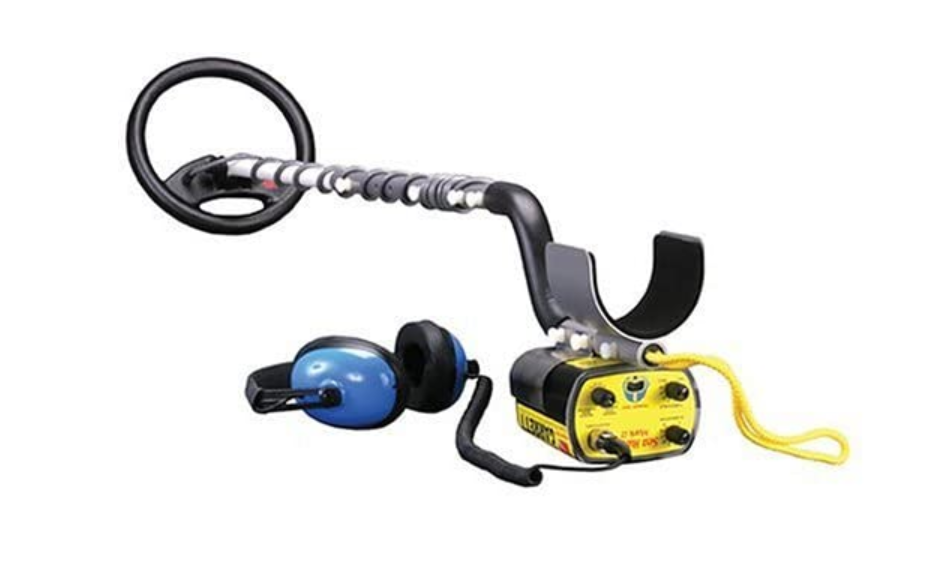
If you want to read a more in-depth review of this detector, click HERE
The Scuba Mate control box can be positioned to suit your needs depending on how you are using the machine. And it’s waterproof up to 200ft, so you will have no problem should you get this detector wet.
This is a PI detector, so it’s easy to cancel out interference from sand and other mineralization. It will also ignore things such as ring pulls and foil and as it comes with waterproof headphones as well, it really is difficult to beat.
Check out the price of the Garrett Sea Hunter Mk II over at Amazon by clicking HERE
No products found.
The Ultimate Beach Detector
This is probably one of the most important in our list of best beach metal detecting tips. Now if you are one of those people who only want the best, then the Minelab Excalibur II is the one for you. This amazing piece of engineering is not only waterproof up to 200 ft, but it also features 17 different frequencies. This means it will find coins, relics, and rings even if they are buried deep down beneath the surface.

It also helps you determine what the target is by emitting a different tone for individual items, making searching a lot more focused and a lot more profitable. Whether detecting on a beach, in the surf, or even diving on a wreck, this machine outperforms almost every detector out there.
So if you find yourself in that enviable position where money is not an issue and you want the ultimate beach detector, the Minelab Excalibur II is the one to go for.
Check out the price of the Minelab Excalibur II over at Amazon by clicking HERE
- The unique design of the Minelab Excalibur II allows you to use it as effectively in or out of the water - this amphibious machine can move seamlessly from land, beach and wet sand conditions to underwater depths of up to 200ft (66m).
- Thanks to a unique method of ground cancelling never again will you get false signals from detecting in salt water. Enjoy the simple yet effective discrimination and be surprised at the sensitivity and depth you uncover targets from.
- Features: BBS 17 frequency technology (1.5kHz 25.5kHz), RCB amplifies weak target signals inside the coil, reducing noise and boosting faint, deep objects, High Visibility (Hi-Vis) fluorescent bodywork, Slimline coil (8” or 10” option) for reduced weight and improved balance, NiMH Rechargeable battery pack for operation up to 12 hours, Hi-Vis Skid plate, Side-mount shaft for shallow and surf-wading (available as an optional accessory).
- Specifications: Application: Coin, Relic, Jewellery, Beach & Dive, Technology: BBS, Frequency/Transmission: Multiple frequencies: 1.5, 3, 4.5,...25.5kHz), Coil (standard): Choice of 8" or 10" round Double-D hardwired coil, Audio Output: Headphones (hardwired), Headphones Supplied: Koss 8 ohm headphones (hardwired), Detect Modes: Discriminate or All-Metal (Pinpoint), Discrimination: Variable Discrimination (adjustable turn control) & All Metal (Pinpoint), Ground Balance:Automatic ground rejection
- Pinpoint: Pinpoint mode, Sensitivity Adjust: Auto & manual (adjustable turn control), Threshold: Adjustable turn contol, Target Volume Adjust: Adjustable turn control, Battery: NiMH battery pack 13V 1000 mAh (14-19 hours). Supplied with mains charger, alkaline battery optional accessory, Low battery alert: Audio alert, Length: Standard shaft 1140mm - 1220mm (45" - 48"); Dive shaft 820mm - 910mm (32" - 36"), Weight: 8" Coil 2.1kg (4.6lbs) or 10" coil 2.3kg (5.1lbs) (inc NiMH battery)
Final Thoughts
We hope you find some value in our best beach metal detecting tips. Metal detecting on a beach is a great pastime and in some cases can be very profitable. It is a great way to get some exercise and sunshine too. And due to its ever-changing environment, things are always getting washed up or get mislaid or lost, just waiting for you to find them. So as long as you follow the rules, check out the permission needed and be respectful of other beach users, you’ll find that there is always something new to discover.


